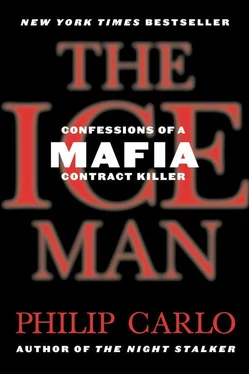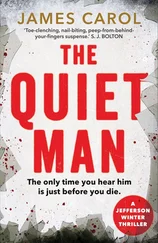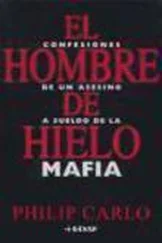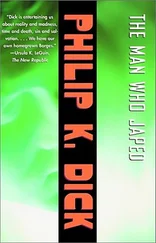On the other hand, he could lose his temper over some little thing and become tyrannical, mean, a menace. The Kuklinski home could be, one moment, a tranquil Shangri-la, the next moment a storm-besieged island in the middle of a dangerous, turbulent sea.
When my dad was normal, he was golden. When he lost it he was… he was a maniac, his daughter Chris recently explained.
Richard bought himself a new white Cadillac. The family began looking for a new house in a better part of Jersey. West New York, Hudson County, was changing; many minority groups were moving in, and Richard and Barbara wanted to move to “greener pastures.”
They wound up buying a split-level ranch-style home in Dumont, New Jersey, with a garage and three bedrooms. This was a nice upper-middle-class neighborhood, a good place to bring up children, a reasonably juicy slice of the American dream come true. Barbara wanted a pool and the grounds covered with bright green healthy sod—no problem; whatever Barbara wanted, Richard was anxious and only too happy to provide. He still had no concept of money and readily spent it as quickly as it came in.
On weekends, the Kuklinskis had extravagant barbecues, invited everyone on the block. Richard was, for the most part, outgoing and friendly—a good neighbor, quick to offer a helping hand. He’d don a cooking apron and happily grill burgers and franks for his children and all their friends. He watched them play in the pool, making sure no one was hurt. He gladly doled out towels and helped dry his children off, happily cleaned the yard after a day of the kids playing. The Kuklinskis had also been blessed by the birth of a son. Barbara had always wanted a boy and her dream had come true. They named the boy Dwayne, after a country singer Richard was fond of.
When Richard did get mad, however, he’d explode. He didn’t seem capable of controlling his anger, and when he became angry his cruelty knew no bounds. It was as if he became a different person; he’d break his children’s toys and keepsakes, smash chairs and tables and knickknacks. After Barbara had the kitchen redone, all new appliances and cabinets installed, Richard lost it and actually tore the cabinets right off the wall, and he pulled the kitchen sink out and tossed it through one of the kitchen windows.
Afterward, he always felt bad, indeed hated what he’d done. He was so angry at himself that he couldn’t even look at himself in the mirror. When he was like that, in one of his out-of-control tirades, all Barbara and the children could do was stay the hell out of his way, and they did, as best they could.
Also, when Richard was mad at Barbara, he had no reservations about abusing her in front of the children. It was as though he didn’t even know they were there. He slapped her, pushed her, beat her. Horrified, his daughters watched this, begging that he stop, screaming and crying and pleading with him to stop. If not for his daughters’ intervention, their pleas, he might well have killed Barbara in a fit of rage. If he had killed her in such a fit, he would also have killed his children.
“If Mommy dies, Merrick,” he actually told his firstborn, “you know I’ll have to kill you and your sister. I couldn’t leave any witnesses… you understand?”
“Yes, Daddy,” Merrick said.
Barbara was, she said, trapped. There was nowhere for her to turn. If she went to the police and showed them her injuries, her black eyes and bruises, he might be arrested; but she knew that he’d be out on bail soon enough and he’d come looking to kill her. He had told her as much in plain language on numerous occasions.
And she believed him.
In her heart Barbara was certain, she explained, that Richard would destroy her if she ever went to the authorities or did anything to cause him to lose his family. Before that he’d kill them all.
However, as odd as this sounds, Barbara was not cowed by Richard. She’d stand up to him, defy him, point her finger in his face and dare him to hit her again—which he usually did. “Big shot, think you’re so tough, beating up a woman—you aren’t tough. You ain’t tough at all!” she’d say, right in his face.
If, daughter Merrick recently explained, my mom had kept her mouth shut it wouldn’t’ve been so bad. She made things worse—a bad situation even worse. It was like she wanted to egg him on. I used to tell her to be quiet—“Mommy, be quiet”—not to answer him back, not to stand up to him—“Mommy, shut up”—but she didn’t.
Barbara’s only way of fighting back, of not losing her own identity, who she was, was to stand up to her husband, and she did, and she regularly suffered the consequences.
Daughter Chris explained it this way: My father married the wrong woman. If, say, Mom was more meek, I mean less outspoken, the tirades would’ve ended much more quickly. But she wouldn’t keep her mouth shut and made it worse. Even when he was actually striking her, beating on her, my mom would taunt, berate, and belittle my dad. My mother… my mother encouraged it.
Barbara, however, does not feel that way: There was no way, she explained, that I was going to allow him to walk all over me and I was going to keep my mouth shut and let him abuse me. I had nowhere to turn, no one to ask for help, and so I told him… I told him how I felt. Maybe, I mean now looking back on it, I was encouraging him, enabling him, but I was not about to let him make a doormat out of me and keep my mouth shut; forget that.
Afterward, Richard was always angry at himself for terrorizing his daughters. Dwayne was still too young to know what was going on. Yet, Richard never said he was sorry or that it wouldn’t happen again. He acted as though nothing had occurred; everything was just peachy and dandy. It was as though a terrible storm had come and gone and the destruction was just a natural consequence of the storm. Nothing more. He had nothing to do with it. It was all the storm’s fault.
Daughter Chris took to calling the operator after one of her father’s tirades and hanging up when she heard the operator’s voice; she somehow felt comforted and reassured knowing that there was someone at the other end of the phone, someone out there who would help. Chris and her sister began to pack an “escape bag,” as they called it. In it were some clothes, a favorite toy or two, an extra pair of shoes for each of them. They figured it was only a matter of time before their father really did kill their mother, and they wanted to have an escape kit ready to go so they could run out the door when the time came.
In no uncertain terms, Barbara again told Richard that if he ever laid a finger on her children, she’d cut his throat when he was sleeping. She said this with such cold, calm sincerity that he believed her. Besides, he would cut his hands off before he ever physically hurt any of his children.
Barbara… Barbara was another matter entirely.
Sometimes, when Richard was losing it, his face paling, his lips twisting up, that terrible clicking sound coming from his lips, he’d actually strike himself with his fist so hard he’d knock himself out cold. This was, he recently confided, the only way he could avoid striking Barbara and terrorizing his little girls: to knock himself out, and he did.
Richard knocking himself unconscious was a frightening, unsettling, sobering thing to see. Not only did he hit himself, he banged his head against the wall so hard he’d knock himself out cold, come to after a while, and silently leave the house, like a tornado going away—quietly disappearing over the horizon.
True, Richard did not strike his children or physically abuse them in any way, but he was causing them great anxiety and pain inside… a thing Barbara seemed oblivious to. Outwardly, Chris and Merrick appeared well adjusted and happy, but inside they were in turmoil. They did, however, make friends easily, were outgoing and gregarious, and did reasonably well in school.
Читать дальше












